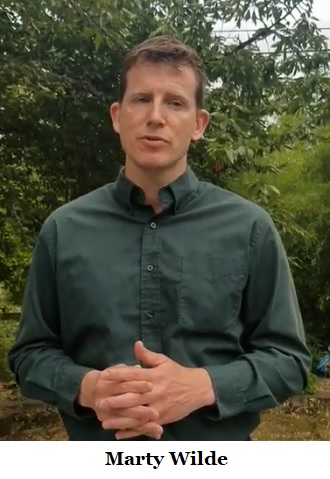
On this day, July 12, 2013, the Oregon Fish and Wildlife commission adopted provisions of a lawsuit settlement that will make the state the only one in the West where killing wolves that attack livestock must be a last resort.
 Post an Event
Post an Event
| TILLAMOOK COUNTY FAIR - 100 YEARS OF PIG N'FORD |
| Wednesday, August 6, 2025 at 10:00 am |
| The Tillamook County Fair received its recognition as one of the top ten Blue Ribbon Fairs in the nation due to its uniqueness; offering so much for fairgoers to enjoy free along with their paid admission. Fairgoers can enjoy all of the Open Class and 4-H/FFA exhibits that Tillamook County residents have prepared the year prior, free entertainment and concerts, live exotic animal displays, and a whole lot more!
FOR MORE INFORMATION
tillamookfairoffice@gmail.com
(M-F, 8 AM-5 PM) at (503) 842-2272.
Reminders:
NO OUTSIDE FOOD OR DRINK
All bags are subject to search
For the safety of all present, only trained service animals are permitted to enter Fairgrounds property. A trained service animal is any guide dog, signal dog, or other animal individually trained to do work or perform tasks for people with disabilities. |
| 4603 East 3rd Street
Tillamook, OR, 97141 |
The Emergency Board also provided support to music, culture and community venues
The Joint Emergency Board held a virtual meeting in order to allocate over $200 million to support COVID-19 relief efforts, specifically targeting investments to struggling workers, small businesses and Oregonians facing the deepest and most disparate impacts of the pandemic.
Among the worthy causes is $35 million to fund $500 Emergency Relief Checks to Oregonians who are still waiting for unemployment benefits. Now, to receive that $500, a one time payment, the
Department of Administrative Services (DAS) will work with financial institutions to develop a simple process for Oregon workers to apply. DAS will report to the Legislative Fiscal Office on behalf of the Emergency Board once this process has been structured on eligibility, application requirements, public access and notification of the program, coverage of financial institution administrative costs, and mechanisms to prevent fraud while protecting public health and ensuring the emergency relief is provided to eligible applicants as quickly and efficiently as possible.
You read that right, legislators actually think a process of application, checking for fraud and notifying eligible parties can be done quickly and faster than simply processing the unemployment benefit. The number waiting has been whittled down from 440,000 to 60,000 and the employment department says these are newly eligible self-employed workers that haven’t been paid. A policy change to deal with the remaining applicants is to allow the closed Gresham office to work remotely from home. Steve Demarest, president of SEIU Local 503, said, “adjudicators who could not work in the office because of health concerns will begin working remotely adding experienced staff to resolve more claims.â€
Was $35 million to appease a
lawsuit filed last week by 13 jobless Oregonians? They imply that a lot of the remaining applicants are non-English speakers and self-employed workers and the outdated computer system only accommodates English. Then there are those that will receive the $500 payment simultaneously with unemployment and those that will just miss the check because unemployment was processed. And where will the state get funds to prop up the economy when the CARES payments end in August?
Senate Majority Leader Rob Wagner (D-Lake Oswego) said, “The Emergency Board also provided support to music, culture and community venues. These entities have taken necessary steps to postpone or cancel their programs in order to prioritize public health. We want to ensure our communities can still benefit from their cultural contributions when they can safely reopen. The Board also put funds toward small businesses who did not receive support through the Paycheck Protection Program. These allocations of federal Coronavirus Relief Fund dollars will help address some of the economic strain caused, and deepened, by this public health crisis. However, there is no question Oregon needs additional federal assistance in order to ensure we can provide support and services individuals and families across our state rely on.â€
--Donna Bleiler| Post Date: 2020-07-14 17:33:59 | Last Update: 2020-07-15 08:17:30 |
After four years, the impacts are finally being felt
In 2015 the Oregon Legislature passed
Motor Voter, in the form of
HB 2177 which directs the DMV to effectively turn over data from every eligible unregistered voter (over 16 years old, an Oregon resident, and a US citizen) when they visit the DMV to apply for, renew, or replace an Oregon drivers’ license, ID card, or permit. Each time this happens, the voter will receive a mailing from the Oregon Elections Division explaining their options for registering to vote.​ ​With the card, they can:
- Do nothing. You will be registered to vote as a non-affiliated voter (not a member of a political party).
- Choose a political party by returning the card. Joining a political party will allow you to vote in its primary elections.
- Use the card to​ opt-out and decline to register to vote.​
One thing that Motor Voter has done, is effectively register everyone in the state to vote. The only way to not be registered to vote is to be ineligible or to take actions to not be registered to vote. Even then, you still might find yourself registered to vote. This has had two major side-effects.
The first is that persons eligible to sign initiative, referendum and recall petitions has increased. You have to be an Oregon registered voter to sign any of these, and with the increase in registered voters, the pool of possible signers has increased -- without increasing the threshold for the number of signatures needed.
Second, it has made voter registration drives a thing of the past. Political parties and civic organizations who formerly did this find very slim pickings now.
These numbers are from July 2020, so they change over time, but absent any change in the drivers of the underlying data, the conclusions from them should be stable.
The population of Oregon was 4,217,737 according to the
US Census Bureau, but 20.5% of those were under 18 and ineligible to vote, leaving 3,353,101 voting age people in Oregon. Of those,
2,843,060 are registered to vote, leaving 510,041 voting age unregistered persons. Subtract from that an unknown number of non-citizens, persons who don't wish to register to vote, and slackers who have been removed from the voter rolls due to having relocated (if your vote-by-mail ballot is returned, you are placed in inactive status) and you are left with very few people who are fine citizens and worthy of chasing down and registering.
In the 2015 session, Motor Voter was passed and it took effect in January of 2016. It's now been over 4 years and, as one might expect since drivers licenses expire every four years, the increase in voter registrations has plateaued almost exactly 4 years from the law going into effect. This chart shows voter registration over time. Notice how the grey line (non-affiliated voters) levels off in about January of 2020?
--Staff Reports| Post Date: 2020-07-14 13:53:50 | Last Update: 2020-10-14 20:58:21 |
Let’s have teachers teach during the school year.
 Editor’s note: This is the fifth in a multi-part series on the budget for the State of Oregon and where possible efficiencies can be found.
Editor’s note: This is the fifth in a multi-part series on the budget for the State of Oregon and where possible efficiencies can be found.
The K-12 educational establishment is very serious about continuing education. There may be some debate about whether advanced degrees and annual continuing education is really necessary to teach third-graders, but if one accepts that that it is, it certainly needs to be done in the most efficient way.
This is perhaps a good time for a change in policy around educator continuing education. The Student Success Act, with it's dollars dedicated to continuing education and the newly formed Educator Advancement Council means that the regime of continuing education for educators is in for some changes. The low-hanging fruit of efficiency is clear: If we're going to do continuing education, let's not do it during the school year, when substitute teachers have to be employed, both at great expense and great disruption to the classroom environment. Instead, if it were required in the summer, some money could be saved.
Because of the equitable funding requirements in the Oregon Constitution, it's not usually feasable for lawmakers to put requirments on funding. However, the new Educator Advancement Council which will provide grants to regional entities who are responsible for funding and supporting professional development and other support for educators in the early learning through K-12 systems. These funds, which amount to $35.8 million for grants to regional entities for continuing education,
can be controlled by the Legislature. Some of this money will go to pay substitutes.
One might expect some push back from the teachers' unions, but a big-picture view might bring them to the table. If we don't get efficiencies like this, the cuts might come directly to education budgets.
--Staff Reports| Post Date: 2020-07-14 08:00:00 | Last Update: 2020-07-06 22:18:27 |
They have until August 17 to get 58,789 valid sigs
“We are grateful the Secretary of State recognized the importance of the democratic process and the significant impacts of the pandemic on Oregonians' ability to participate in this process,†said Norman Turrill, chair of
People Not Politicians and Chief Petitioner of IP 57. "While we are confident in the validity of the signatures we submitted, we know there are tens of thousands of Oregon voters eager for their signature to count. We will continue to collect signatures to ensure Oregon voters have a chance to bring the redistricting reform we need to end gerrymandering in Oregon once and for all.â€
Secretary Clarno released her decision in response to a preliminary order issued by Judge Michael J. McShane on July 10 to grant People Not Politicians, a broad and diverse coalition that has come together to create an independent citizens commission for Oregon, relief to qualify its redistricting reform initiative for the November 2020 election.
The judge’s order allowed the Secretary of State to decide by 5:00pm Monday, July 13, 2020 to either accept
People Not Politician’s signatures as submitted, or accept a reduced number of signatures to 58,789 and allow additional time to gather until August 17, 2020. The campaign submitted over 64,000 signatures on July 2, meaning that they've already submitted enough signatures -- though they may not all be valid -- but this move by the Secretary of State certainly puts them within striking distance.
Initiative Petition 57, filed in November 2019, would create the Oregon Citizens Redistricting Commission and put redistricting in the hands of voters, not our politicians. The commission would consist of 12 Oregonians who applied and were selected from qualified applicants – four from the first largest political party, four from the second largest political party, and four others who are third party members or non-affiliated. Major donors to political candidates or parties would not be eligible. Neither would elected-officials, political party officials or their family members. Commissioners would be selected to represent the broad diversity of Oregonians.
The initiative campaign coalition has been led by the League of Women Voters of Oregon, Common Cause Oregon, Oregon Farm Bureau, the Independent Party of Oregon, NAACP Eugene/Springfield Branch, OSPIRG, Oregon’s Progressive Party, and tens of thousands of Oregonians who support the effort to remove conflicts of interest from drawing of voter lines.
--Staff Reports| Post Date: 2020-07-13 21:34:28 | Last Update: 2020-07-13 21:35:12 |
Counters message of defunding law enforcement
Today, the President gathered a group of Americans at the White House to tell stories about our police that we almost never hear about from mainstream media. Last month, President Trump signed an executive order on Safe Policing for Safe Communities to incentivize law enforcement agencies to adopt best practices in the use of force rather than defund police departments. Without police innocent lives would not be saved. These stories were shared:
- Battling substance abuse since the age of 11, Kenneth Bearden has suffered over 30 overdoses. Police officers had to help revive him more than a dozen times. Today, Kenneth is 6 years sober. “My son would not have his father today if it wasn’t for [those] police officers.â€
- Spencer Bohan, a non-verbal child with autism, "doesn't really have a sense of danger—so when he goes missing, it's like life or death," his mother Sara said. When he climbed out of his bedroom window and went missing, the Roanoke County Police came and found Spencer within 12 minutes of searching.
- Pastor Perry Cleek’s church, Lighthouse Baptist in Tennessee, chose to give $1,000 to every member of the town's police department. "The voice of small-town America is seldom heard . I think small towns all over America feel like we do,†Pastor Cleek said.
- Deputy William Kimbro, a South Carolina police officer, pulled over Boyd for a routine traffic stop when he saw her vehicle. After finding the frantic mother and child inside, he immediately went to work, clearing the baby’s windpipe and helping her to begin breathing again until an emergency medical team arrived. Kimbro saved the child’s life.
As Portland City Council votes to defund police by $15 million, Multnomah County prosecutors dropped charges against 59 rioters giving ANTIFA a free pass. How many lives will Portland police be able to influence or save?
--Donna Bleiler| Post Date: 2020-07-13 19:24:46 | Last Update: 2020-07-14 15:28:12 |
Kermit always comes through for us
--Northwest Observer Meme Team| Post Date: 2020-07-13 14:35:57 | |
“It all depends on you. Your choices determine our future."
In response to the "alarming rise in COVID-19 case counts" across Oregon over the last several weeks, Governor Kate Brown today announced new requirements for face coverings and limits on social get-togethers. Effective Wednesday, July 15, Oregon’s face covering requirement will be expanded to apply to outdoor public spaces when six feet of distance cannot be maintained. In addition, indoor social get-togethers of more than 10 people will be prohibited. Civil-libertarians noted that the decision could not have been based on the relatively few deaths --
237 in Oregon -- so far.
The gathering limit applies only to indoor social get-togethers. This new rule does not change the operation of businesses or churches at this time. This move was interpreted by some to be a defensive maneuver designed to avoid lawsuits from businesses or churches.
Governor Brown noted that failure to comply with the new requirements would lead to more outbreaks of COVID-19 and more restrictive closures with greater impact on Oregon’s economies, communities, health care systems, and families.
“We need to do absolutely everything we can to reduce transmission in ways that do not require us to close down businesses again," said Governor Brown. “The proof here will be in the numbers. Either people will adhere to this requirement and be a positive force for stopping COVID-19, or I will be forced to take more restrictive measures.â€
“It all depends on you. Your choices determine our future."
Governor Brown shared the following facts about COVID-19 in Oregon:
- Oregon reported more cases in the past week than in the entire month of May.
- The last time Oregon had less than 100 cases in a single day was more than a month ago.
- Half of all cases in Oregon are from people under the age of 40 and one third of all cases are from people under the age of 30.
- Currently, people in their 20s and 30s are the most likely group to get sick with COVID-19.
- Two Oregonians in their 30s have died from COVID-19.
Updated face covering and indoor social get-together guidance will be posted to coronavirus.oregon.gov.
--Staff Reports| Post Date: 2020-07-13 14:22:34 | |
Let’s integrate education and save some money
 Editor’s note: This is the fourth in a multi-part series on the budget for the State of Oregon and where possible efficiencies can be found.
Editor’s note: This is the fourth in a multi-part series on the budget for the State of Oregon and where possible efficiencies can be found.
Although it was controversial when it happened in 2009, the state shut down the Oregon School for the Blind and allocated proceeds from the sale of assets for the benefit of Oregon's blind students. As integrated education is increasingly -- though not universally -- regarded as beneficial for both the disabled student as well as the all of the student body, closure of the Oregon School for the Deaf seems to be not only fiscally responsible, but sound instructional policy.
At the beginning of the 2018-19 school year, OSD was serving 117 students with 62, or 53%, of the students in the day program and the remaining 55 students residing on the campus during the school year. At about $19 million per biennium, that's over $81,000 per student annually. It seems like they could be both better served and more efficiently served by local school districts partnering with their local Education Service Districts.
Though the budget for the agency is over $19 million, shuttering the institution certainly wouldn't return all that money back to the general fund. These students still have extraordinary needs and that costs money -- though probably not $81,000 per year. The 52 acre campus could generate much revenue at sale.
Savings: $3 million one-time sale of assets, plus $5-10 million biennially
--Staff Reports| Post Date: 2020-07-12 08:00:00 | Last Update: 2020-07-01 21:31:10 |
Rep. Hernandez voted for the regressive tax
State Rep. Diego Hernandez voted for a cell phone tax, which passed during the first Special Session at a time when Oregon’s people and economy might not appreciate the financial investment on behalf of the government, when they are themselves are soon required to make massive and historic budget cuts due to the recent shutdown of the economy. The tax will be applied to monthly service bills.
The proceeds of the tax are dedicated to building rural broadband infrastructure. Nonetheless, many Republican legislators from rural districts voted no, as they could not see the benefits outweighing the drawback of another tax.
Senate Republicans voted against
SB 1603, describing it as a cell phone tax disguised as a rural assistance bill. “The legislative process has not only been taken away from Oregonians, but now they must absorb a new tax when they are living in an economic shutdown,†said Senate Republican Leader Fred Girod (R-Stayton). “Democrats are spending money the state doesn’t have. This is a tax, and I think Oregon deserves better.†The Emergency Board recently allocated $20 million to broad band. “You know something is wrong with a bill when senators like me that represent rural Oregonians voted no,†said Senator Lynn Findley (R-Vale). “My constituents cannot afford another tax on their livelihoods, especially when the Emergency Board just allocated $20 million in funds to broadband without any plan on what projects the money will go to.â€
Critics have also noted that many Oregonians -- including many rural Oregonians -- use their cell phone as an internet connection and has the effect of taxing an existing internet connection in order to create another one. The irony of urban Democrats voting to tax their urban constituents to create a benefit for rural areas is also apparent. The tax is seen by experts as regressive, placing a heavier burden on lower-income people who have to use a greater proportion of their income to pay the tax.
Governor Brown signed the bill into law on July 7.
--Staff Reports| Post Date: 2020-07-10 21:08:15 | Last Update: 2020-08-03 21:08:30 |
Federal court grants extension
A federal district court issued a preliminary order granting
People Not Politicians, a broad and diverse coalition to create an independent citizens commission for Oregon, relief to qualify its redistricting reform initiative for the November 2020 election. The judge’s order allows the Secretary of State to decide by 5:00pm Monday, July 13, 2020 to either accept People Not Politician’s signatures as submitted, or accept a reduced number of signatures to 58,789 and allow additional time to gather until August 17, 2020.
Judge Michael J. McShane in People Not Politicians v. Secretary of State Clarno ruled in favor of People Not Politicians which executed a no-contact statewide signature gathering campaign in order to qualify Initiative Petition 57 for the November 2020 ballot while observing Governor Kate Brown’s stay-at-home orders.
Judge McShane found that People Not Politicians exercised “reasonable diligence†in attempting to qualify for the ballot, specifically because of the hard work that the campaign did to do outreach, build a broad coalition and plan creatively to collect signatures in light of the COVID-19 pandemic.
Through direct mail to 500,000 households and grassroot volunteer efforts that included multiple methods of outreach to thousands of voters, People Not Politicians gathered signatures from over 64,000 voters who signed IP 57 and mailed it back to the campaign.
Activists in other states have successfully challenged state petition and signature laws. In Arkansas, Illinois, Nevada, Massachusetts, Michigan and Virginia, courts granted extensions of the signature submission deadline and/or reductions in the signature threshold and other relief. Building on those successes, People Not Politicians asked a federal district court in Oregon for similar relief on June 30.
Kathay Feng, Redistricting & Representation Director, Common Cause
“We filed this lawsuit asking the Court to recognize the extreme and unprecedented circumstances of a global pandemic and the burdens that the Governor’s orders placed on PNP’s First Amendment rights. Oregonians will now have a say on IP 57, giving people, not politicians, the ability to just in time for the 2021 redistricting process.â€
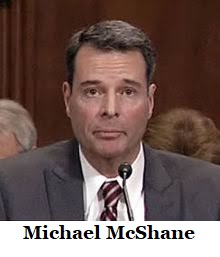
“People Not Politicians is fighting to enact redistricting reform before Oregon draws new maps in 2021. We forged ahead through this COVID crisis and implemented an unprecedented signature gathering program, bringing in tens of thousands of petitions from Oregonians in barely over one month,†said Norman Turrill, spokesperson for People Not Politicians.
Initiative Petition 57, filed in November 2019, would create the Oregon Citizens Redistricting Commission and put redistricting in the hands of voters, not our politicians. The commission would consist of 12 Oregonians who applied and were selected from qualified applicants – four from the first largest political party, four from the second largest political party, and four others who are third party members or non-affiliated. Major donors to political candidates or parties would not be eligible. Neither would elected-officials, political party officials or their family members. Commissioners would be selected to represent the broad diversity of Oregonians.
The initiative campaign coalition has been led by the League of Women Voters of Oregon, Common Cause Oregon, Oregon Farm Bureau, the Independent Party of Oregon, NAACP Eugene/Springfield Branch, OSPIRG, Oregon’s Progressive Party, and tens of thousands of Oregonians who supported the effort to remove conflicts of interest from drawing of voter lines.
Steve Elzinga of Sherman, Sherman, Johnnie and Hoyt represented People Not Politicians in court. Common Cause attorneys Dan Vicuna, Suzanne Almeida, Kathay Feng, and law clerks Alton Wang and Michael Guggenheim, and Kecker Van Nest attorney Adam Lauridsen contributed to the briefs.
--Staff Reports| Post Date: 2020-07-10 19:30:35 | |
Rep. Marty Wilde voted for the regressive tax
State Rep. Marty Wilde voted for a cell phone tax, which passed during the first Special Session at a time when Oregon’s people and economy might not appreciate the financial investment on behalf of the government, when they are themselves are soon required to make massive and historic budget cuts due to the recent shutdown of the economy. The tax will be applied to monthly service bills.
The proceeds of the tax are dedicated to building rural broadband infrastructure. Nonetheless, many Republican legislators from rural districts voted no, as they could not see the benefits outweighing the drawback of another tax.
Senate Republicans voted against
SB 1603, describing it as a cell phone tax disguised as a rural assistance bill. “The legislative process has not only been taken away from Oregonians, but now they must absorb a new tax when they are living in an economic shutdown,†said Senate Republican Leader Fred Girod (R-Stayton). “Democrats are spending money the state doesn’t have. This is a tax, and I think Oregon deserves better.†The Emergency Board recently allocated $20 million to broad band. “You know something is wrong with a bill when senators like me that represent rural Oregonians voted no,†said Senator Lynn Findley (R-Vale). “My constituents cannot afford another tax on their livelihoods, especially when the Emergency Board just allocated $20 million in funds to broadband without any plan on what projects the money will go to.â€
Critics have also noted that many Oregonians -- including many rural Oregonians -- use their cell phone as an internet connection and has the effect of taxing an existing internet connection in order to create another one. The irony of urban Democrats voting to tax their urban constituents to create a benefit for rural areas is also apparent. The tax is seen by experts as regressive, placing a heavier burden on lower-income people who have to use a greater proportion of their income to pay the tax.
Governor Brown signed the bill into law on July 7.
--Ben Fisher| Post Date: 2020-07-10 19:10:16 | Last Update: 2020-08-03 21:58:15 |
Rep. Courtney Neron voted for the regressive tax
State Rep. Courtney Neron voted for a cell phone tax, which passed during the first Special Session at a time when Oregon’s people and economy might not appreciate the financial investment on behalf of the government, when they are themselves are soon required to make massive and historic budget cuts due to the recent shutdown of the economy. The tax will be applied to monthly service bills.
The proceeds of the tax are dedicated to building rural broadband infrastructure. Nonetheless, many Republican legislators from rural districts voted no, as they could not see the benefits outweighing the drawback of another tax.
Senate Republicans voted against
SB 1603, describing it as a cell phone tax disguised as a rural assistance bill. “The legislative process has not only been taken away from Oregonians, but now they must absorb a new tax when they are living in an economic shutdown,†said Senate Republican Leader Fred Girod (R-Stayton). “Democrats are spending money the state doesn’t have. This is a tax, and I think Oregon deserves better.†The Emergency Board recently allocated $20 million to broad band. “You know something is wrong with a bill when senators like me that represent rural Oregonians voted no,†said Senator Lynn Findley (R-Vale). “My constituents cannot afford another tax on their livelihoods, especially when the Emergency Board just allocated $20 million in funds to broadband without any plan on what projects the money will go to.â€
Critics have also noted that many Oregonians -- including many rural Oregonians -- use their cell phone as an internet connection and has the effect of taxing an existing internet connection in order to create another one. The irony of urban Democrats voting to tax their urban constituents to create a benefit for rural areas is also apparent. The tax is also seen by experts as regressive, placing a heavier burden on lower-income people who have to use a greater proportion of their income to pay the tax.
Governor Brown signed the bill into law on July 7.
--Ben Fisher| Post Date: 2020-07-10 19:10:16 | Last Update: 2020-08-03 20:12:22 |
Read More Articles






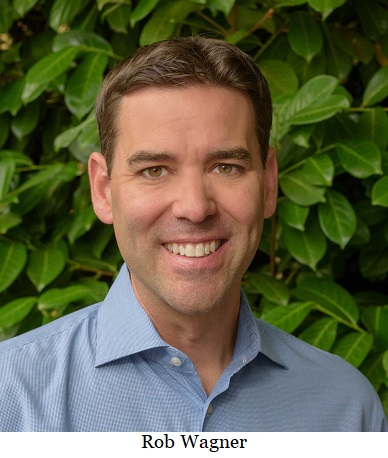

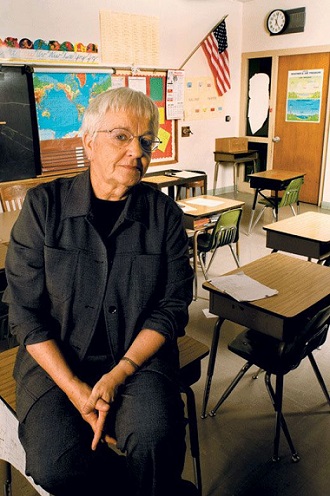
 Editor’s note: This is the fifth in a multi-part series on the budget for the State of Oregon and where possible efficiencies can be found.
Editor’s note: This is the fifth in a multi-part series on the budget for the State of Oregon and where possible efficiencies can be found.
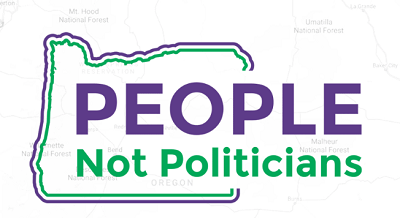




 Editor’s note: This is the fourth in a multi-part series on the budget for the State of Oregon and where possible efficiencies can be found.
Editor’s note: This is the fourth in a multi-part series on the budget for the State of Oregon and where possible efficiencies can be found.
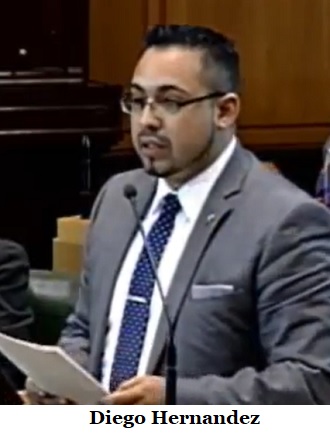

 “People Not Politicians is fighting to enact redistricting reform before Oregon draws new maps in 2021. We forged ahead through this COVID crisis and implemented an unprecedented signature gathering program, bringing in tens of thousands of petitions from Oregonians in barely over one month,†said Norman Turrill, spokesperson for People Not Politicians.
“People Not Politicians is fighting to enact redistricting reform before Oregon draws new maps in 2021. We forged ahead through this COVID crisis and implemented an unprecedented signature gathering program, bringing in tens of thousands of petitions from Oregonians in barely over one month,†said Norman Turrill, spokesperson for People Not Politicians.
